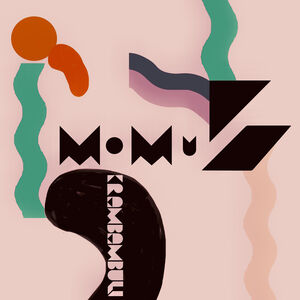Show results for
Explore
In Stock
Artists
Actors
Authors
Format
Theme
Category
Genre
Rated
Label
Specialty
Decades
Size
Color
Deals
- Blu-ray Outlet
- New Release 4K
- New Release Blu-ray
- New Release DVD
- New Release Gifts
- New Release Music
- New Release Vinyl
- Top Seller 4K
- Top Seller Blu ray
- Top Seller DVD
- Top Seller Vinyl
- top sellers all movies
- top sellers all music
- Top Selling Gifts
- TV Outlet
- Top Seller Music
- DVD Outlet
- In Stock Outlet
- Music Outlet

Krambambuli
- Format: CD
- Release Date: 13/10/2023

Krambambuli
- Artist: Momus
- Label: American Patchwork
- Genre: Electronic
- UPC: 708527230459
Product Notes
Returning to Europe after several months in Asia, Momus begins recording Krambambuli with a yen for melodrama. Assuming the persona of an obscure Japanese synth-chanson singer called Megumi Satsu, he records 1980s-style songs about murder, ageing and war using a new vocal technique halfway between Satsu's rambling, guttural cries and the Sprechgesang (speaking-singing) style pioneered a century ago by Arnold Schoenberg. As the lights dim, we find ourselves in - as one song puts it - "the theatre of the self". The chord sequences this time are baroque-inspired and the textures synthetic, so artists like Klaus Nomi swim into view, bringing distant echoes of Handel and Purcell. A more poppy tone emerges in songs like Captivate and Hotdesking, influenced - oddly enough - by South Korean pop-dance sensation New Jeans. Lyrically, these songs make bridges between political themes of military invasion - with the ongoing Ukraine war as a constant backdrop - and the idea of personal charm as a guilty and ambivalent power strategy. A 1980 duet between Kermit the Frog and Debbie Harry inspires Men Are The Problem, a sigh of exasperation about the foolish machismo still rampant in geopolitics. Humour returns in the form of a song recounting the plot of Walerian Borowczyk's 1975 erotic horror film The Beast, and towards the end of the record British comedian Tony Hancock pops up to parody beatnik poetry. Chugging, surreal chords and nonsense lyrics finally tug the record towards the psychedelic soundscapes of Wire's 1979 album 154. And it goes without saying - this being Momus at his most theatrical - that David Bowie's influence is here too, as strong as ever.


